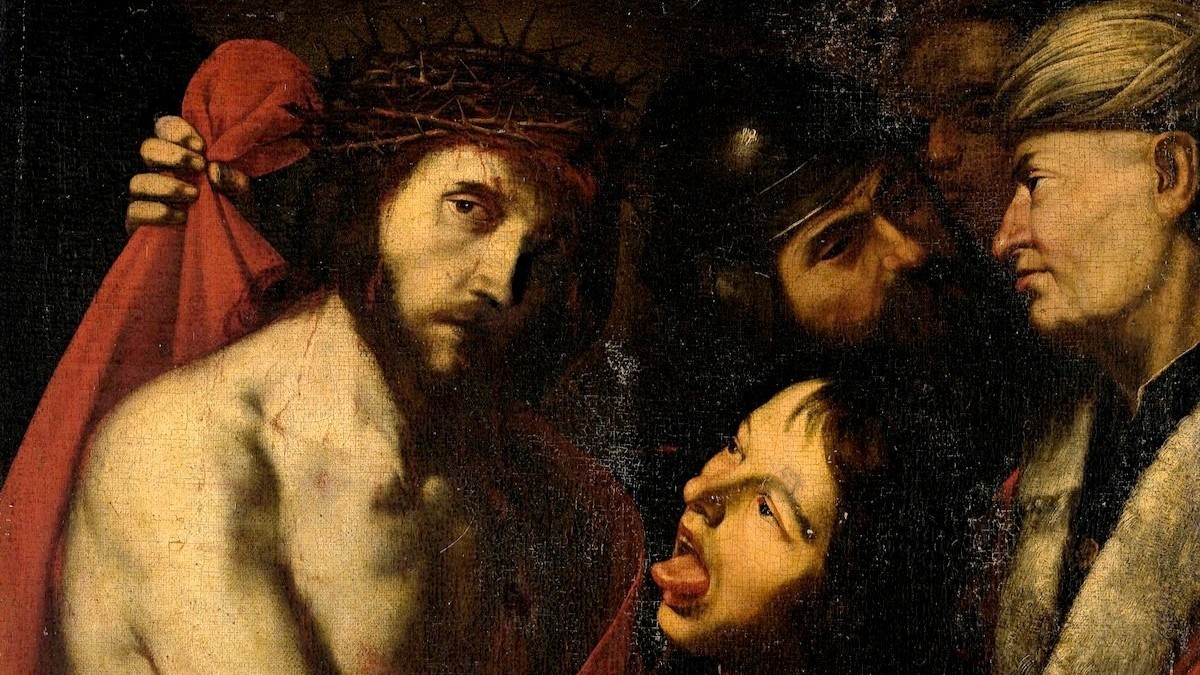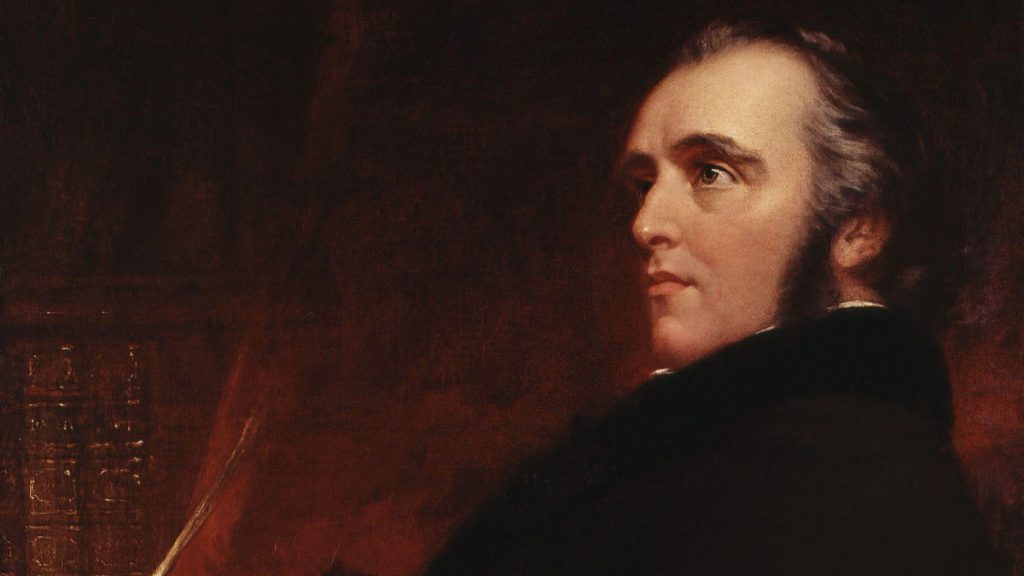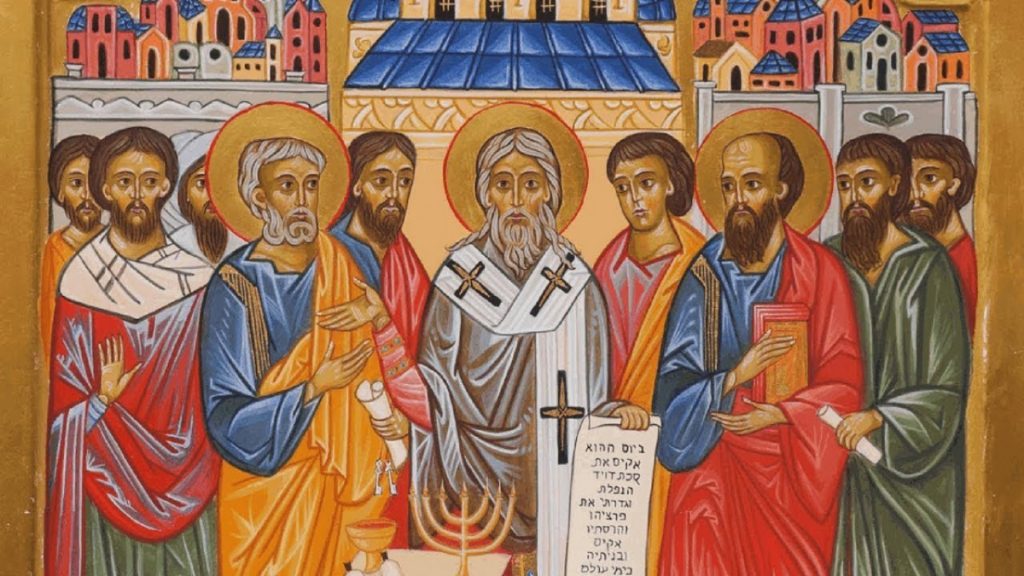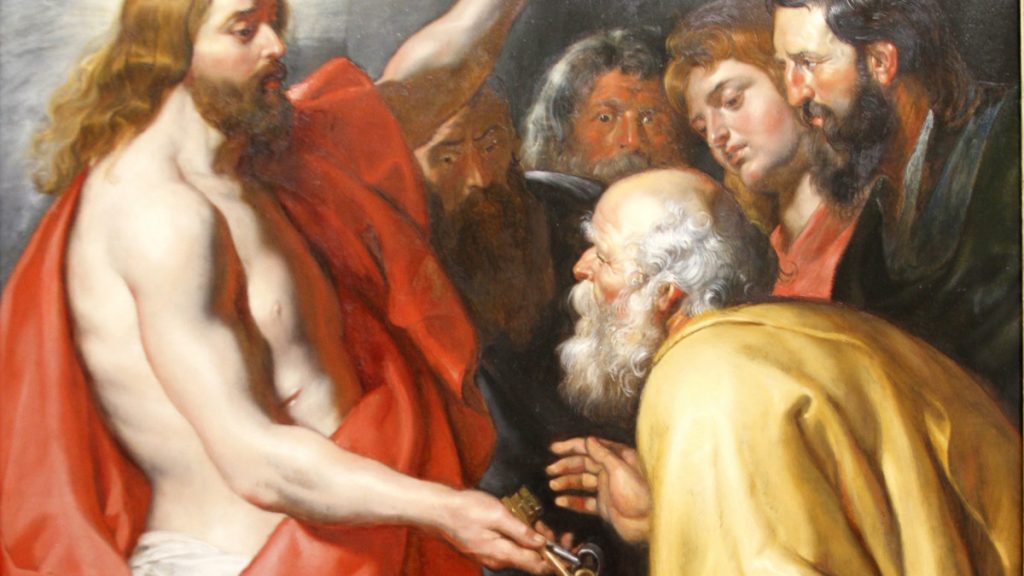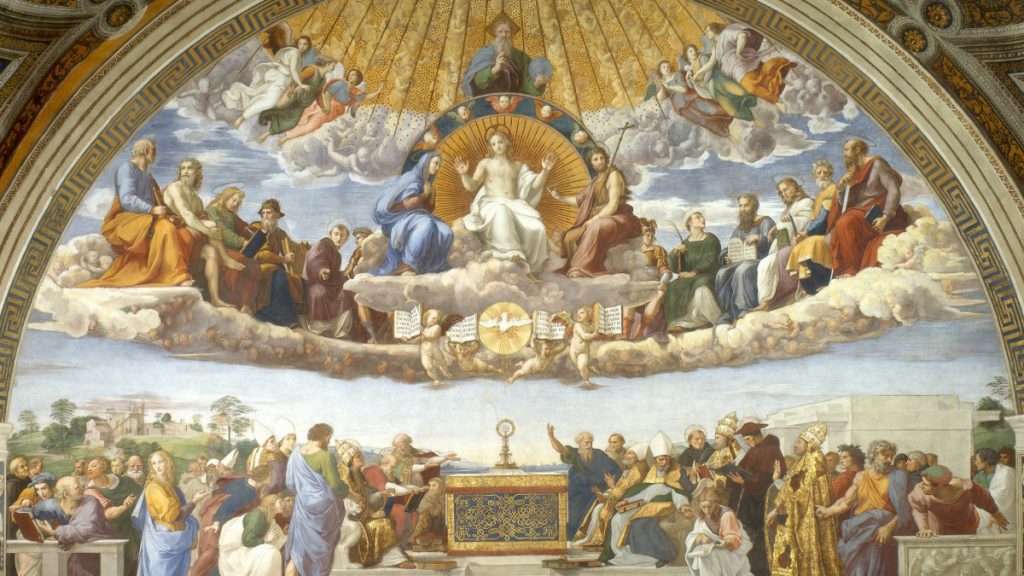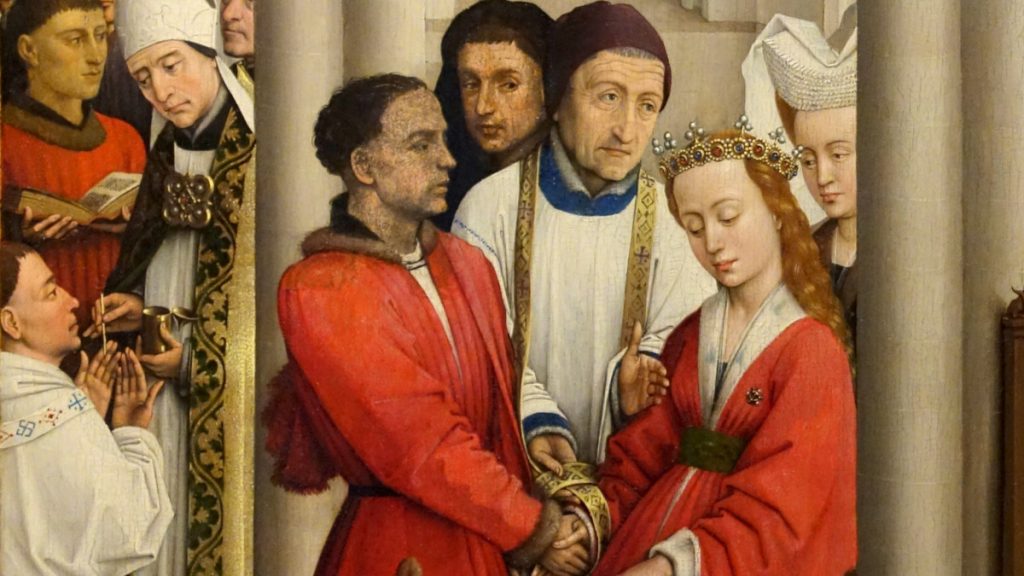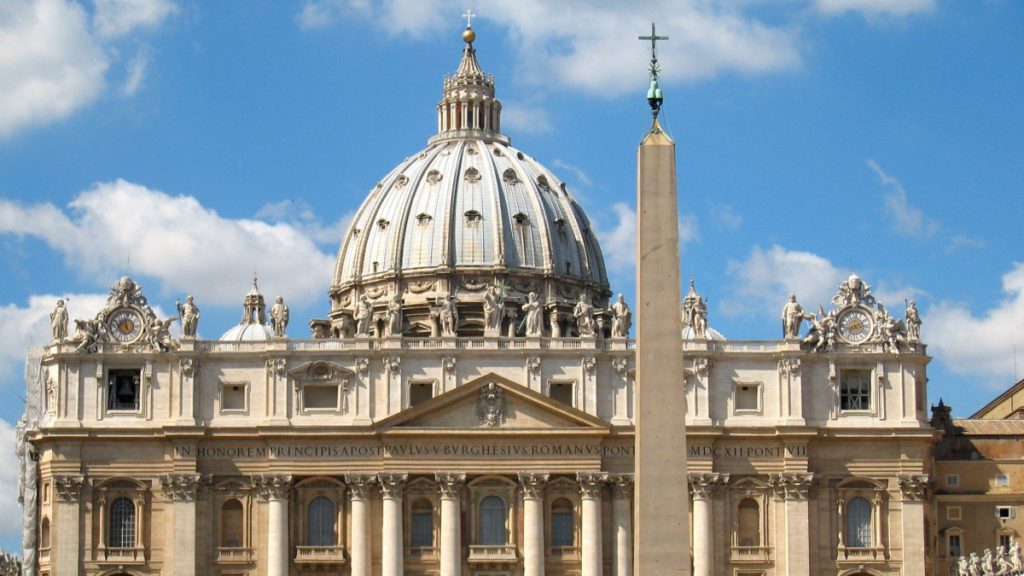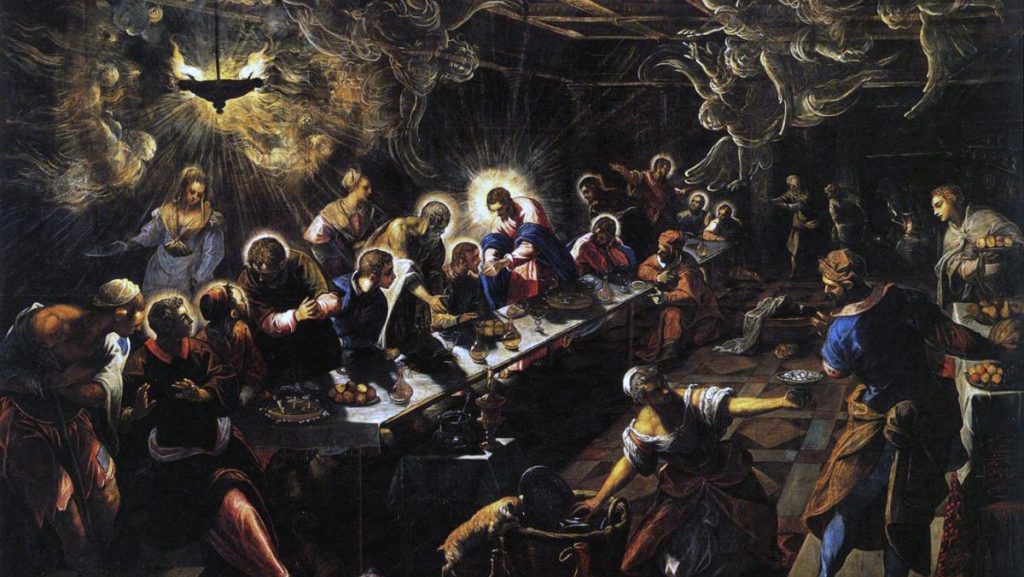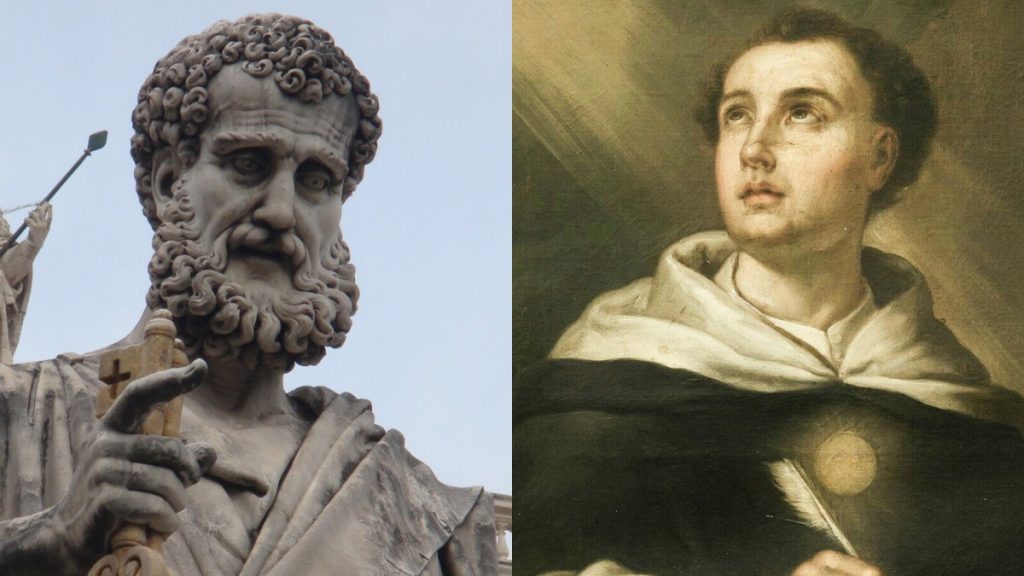Relevant Resources
- Podcast Episode #11 | YouTube | Apple | Spotify
- Quote Archive | The Canon of Scripture
Roadmap
In this first installment about the Deuterocanonical books—commonly called “Apocrypha” among protestants—I will explain how reading a prophecy in one of the books excluded by protestants helped paved the way for me to believe they were in fact part of Sacred Scripture.
Our Roadmap is as follows:
- Our thesis is that this prophecy from the book of Wisdom 2:12-20, written centuries before Christ came into the world, describes His Passion so incredibly accurately that the most likely explanation is that it is in fact divinely inspired, and thus part of Sacred Scripture. We will show this by:
- Pointing to a similar prophecy from Isaiah 53 that both Catholics and protestants agree is extraordinarily accurate in its description of Christ centuries before, and thus evidence of its divine inspiration; then
- Sharing the words of the prophecy from the book of Wisdom; then
- Going through each of the key lines of the prophecy, showing the amazing ways in which they match with the witness of the New Testament; then
- Summarizing why this text played such an important role in convincing me that the books I had considered “Apocrypha” as a protestant were actually very likely part of Sacred Scripture.
Isaiah 53: Evidence of the Inspiration of the Old Testament
It is widely believed that the most explicit Messianic prophecy of Jesus in the Old Testament is found in Isaiah 53, which we will now read (Isa. 53):
1 Who has believed what we have heard? And to whom has the arm of the Lord been revealed? 2 For he grew up before him like a young plant, and like a root out of dry ground; he had no form or comeliness that we should look at him, and no beauty that we should desire him. 3 He was despised and rejected by men; a man of sorrows, and acquainted with grief; and as one from whom men hide their faces he was despised, and we esteemed him not. 4 Surely he has borne our griefs and carried our sorrows; yet we esteemed him stricken, smitten by God, and afflicted. 5 But he was wounded for our transgressions, he was bruised for our iniquities; upon him was the chastisement that made us whole, and with his stripes we are healed. 6 All we like sheep have gone astray; we have turned everyone to his own way; and the Lord has laid on him the iniquity of us all. 7 He was oppressed, and he was afflicted, yet he opened not his mouth; like a lamb that is led to the slaughter, and like a sheep that before its shearers is dumb, so he opened not his mouth. 8 By oppression and judgment he was taken away; and as for his generation, who considered that he was cut off out of the land of the living, stricken for the transgression of my people? 9 And they made his grave with the wicked and with a rich man in his death, although he had done no violence, and there was no deceit in his mouth. 10 Yet it was the will of the Lord to bruise him; he has put him to grief; when he makes himself an offering for sin, he shall see his offspring, he shall prolong his days; the will of the Lord shall prosper in his hand; 11 he shall see the fruit of the travail of his soul and be satisfied; by his knowledge shall the righteous one, my servant, make many to be accounted righteous; and he shall bear their iniquities. 12 Therefore I will divide him a portion with the great, and he shall divide the spoil with the strong; because he poured out his soul to death, and was numbered with the transgressors; yet he bore the sin of many, and made intercession for the transgressors.
Catholics and protestants agree that this prophecy is so clearly pointing to Christ that we won’t spend time arguing why that is so. We both agree it’s obvious.
The Prophecy from Wisdom
But what I discovered was there was a prophecy about Christ that was at least equally, if not more clear in one of the books I had always believed was part of the “Apocrypha.” These are seven books the Catholic Church teaches is part of the Bible, but protestants have historically rejected. Some early protestants included these books in their versions of the Bible, claiming they were “useful,” but not divinely inspired, while virtually all modern protestants exclude them from their Bibles entirely. In fact, reading this prophecy played an immense role in getting me to at least consider the possibility that these seven books were in fact divinely inspired.
The “Apocrypha,” or “Deuterocanonical” (“second canon”) books consist of the following books: Tobit, Judith, 1 and 2 Maccabees, Wisdom, Sirach, Baruch, and portions of the book of Daniel and Esther.
In this post, I’m not making a comprehensive case for the Deuterocanonical books. I’m simply showing one particularly powerful data point that convinced me these books are in fact part of Sacred Scripture, as the Catholic Church has taught.
The standard we’re using comes straight from the Torah (Deut. 18:20-22):
20 But the prophet who presumes to speak a word in my name which I have not commanded him to speak, or who speaks in the name of other gods, that same prophet shall die.’ 21 And if you say in your heart, ‘How may we know the word which the Lord has not spoken?’—22 when a prophet speaks in the name of the Lord, if the word does not come to pass or come true, that is a word which the Lord has not spoken; the prophet has spoken it presumptuously, you need not be afraid of him.
In this case, the prophecy we are referring to comes from the second chapter of the book of Wisdom. This prophecy, written centuries before Christ, provides a remarkable description of Jesus (the “righteous man”), His ministry (as perceived by His enemies), and His execution at the hands of His enemies. The words of the prophecy are as follows (Wis. 2:12-20):
12 “Let us lie in wait for the righteous man, because he is inconvenient to us and opposes our actions; he reproaches us for sins against the law, and accuses us of sins against our training. 13 He professes to have knowledge of God, and calls himself a child of the Lord. 14 He became to us a reproof of our thoughts; 15 the very sight of him is a burden to us, because his manner of life is unlike that of others, and his ways are strange. 16 We are considered by him as something base, and he avoids our ways as unclean; he calls the last end of the righteous happy, and boasts that God is his father. 17 Let us see if his words are true, and let us test what will happen at the end of his life; 18 for if the righteous man is God’s son, he will help him and will deliver him from the hand of his adversaries. 19 Let us test him with insult and torture, that we may find out how gentle he is, and make trial of his forbearance. 20 Let us condemn him to a shameful death, for, according to what he says, he will be protected.”
Let’s briefly analyze the prophecy line by line.
“He reproaches us for sins against the law, and accuses us of sins against our training”
This is a common theme throughout the Gospels, where Christ frequently upbraids the Jewish leadership for their misunderstanding of the Torah. To the Pharisee, Nicodemus, He directly asks him, “Are you a teacher of Israel, and yet do not understand this?” (John 3:10) Elsewhere, He says (John 5:39-40):
39 You search the scriptures, because you think that in them you have eternal life; and it is they that bear witness to me; 40 yet you refuse to come to me that you may have life.
He also criticized the way in which the Pharisees imposed burdens on the people in a way that violated the spirit, and sometimes even the letter of the law (Matt. 23:2-4):
2 “The scribes and the Pharisees sit on Moses’ seat; 3 so practice and observe whatever they tell you, but not what they do; for they preach, but do not practice. 4 They bind heavy burdens, hard to bear, and lay them on men’s shoulders; but they themselves will not move them with their finger.
In short, as is well-known to all, the Gospels are full of very strident criticisms of the Pharisees and the leadership of the Jews by Christ, precisely as Wisdom prophesied.
“Calls himself a child of the Lord”
Jesus is known as and believed to be the Son of God by Christians. The essence of the Christian Faith was first enunciated by St. Peter: “You are the Christ, the Son of the living God” (Matt. 16:16). At His trial before the Sanhedrin, the high priest directly asked Him if He was the Son of God, and He not only did not deny it, but affirmed it by referencing other Messianic prophecies that speak of the Son of Man coming down on the clouds (Matt. 26:63-64; cf. Mark 14:61-62; Luke 22:70). The Gospel of Mark likewise opens with the words, “The beginning of the gospel of Jesus Christ, the Son of God” (Mark 1:1). Many other examples could be cited.
“A reproof of our thoughts…he avoids our ways as unclean”
Jesus frequently contrasted the outward purity and religiosity of the Pharisees and other members of the Jewish leadership with the internal state of their hearts. Hence His labeling them “whitewashed tombs, which outwardly appear beautiful, but within they are full of dead men’s bones and all uncleanness” (Matt. 23:27). Elsewhere He called them a “brood of vipers” (Matt. 12:34, 23:33), and in too many places to cite called them “hypocrites,” with the Gospels noting that Jesus knew that behind their words often stood duplicitous intentions.
Jesus also frequently prefaced His teaching by saying “You have heard it said,” followed by “But I say” (Matt. 5:21, 22, et al). The Gospels thus often observe that those who heard Him were amazed because He spoke as one “with authority” (Matt 7:29). Sometimes, Christ even directly contradicted the Pharisees and their traditions, asserting they actually violated the law they claimed it upheld. Jesus did this to contrast His teaching and way of life with that of the Pharisees.
These and many other examples show that just as Wisdom prophesied, Jesus was a constant “reproof” of the thoughts of the Jewish leaders, and He taught that many of their ways should be avoided “as unclean.”
“Boasts that God is his father”
This point is obvious, and the natural corollary of Jesus being the Son of God. The Lord’s Prayer itself begins, “Our Father.” It was because Jesus identified God as His Father that many in the Jewish leadership accused Him of blasphemy.
“Let us condemn him to a shameful death”
The prophecy speaks of a “shameful death” being imposed on this “righteous man,” a fact that the Gospels make abundantly obvious. The rest of the New Testament, echoing the Torah, likewise speaks of everyone who hangs from a tree being accursed (Gal. 3:13), of the cross as a form of humility (Phil. 2:8), and the crucifixion as a shameful form of death (Heb. 12:2), concurring once again with Wisdom’s prophecy.
“If the righteous man is God’s son, he will help him”
These words of Wisdom’s prophecy are all but directly quoted by the criminals alongside Jesus, as well as the chief priests, scribes, and elders of the Jews as Jesus is dying on the cross (Matt. 27:38-43; cf. Mark 15:27-32; Luke 23:35-39):
38 Then two robbers were crucified with him, one on the right and one on the left. 39 And those who passed by derided him, wagging their heads 40 and saying, “You who would destroy the temple and build it in three days, save yourself! If you are the Son of God, come down from the cross.” 41 So also the chief priests, with the scribes and elders, mocked him, saying, 42 “He saved others; he cannot save himself. He is the King of Israel; let him come down now from the cross, and we will believe in him. 43 He trusts in God; let God deliver him now, if he desires him; for he said, ‘I am the Son of God.’”
The Wisdom prophecy goes on to describe the folly of these wicked enemies of the “righteous man” this way (Wis. 2:21-24):
21 Thus they reasoned, but they were led astray, for their wickedness blinded them, 22 and they did not know the secret purposes of God, nor hope for the wages of holiness, nor discern the prize for blameless souls; 23 for God created man for incorruption, and made him in the image of his own eternity, 24 but through the devil’s envy death entered the world, and those who belong to his party experience it.
This reference to “the secret purposes of God” is mirrored through the New Testament. For example, the Gospels explain Jesus’s use of parables from a prophecy that says “I will utter what has been hidden since the foundation of the world” (Matt. 13:35).
Similarly, outside the Gospels, St. Paul echoes Wisdom’s assertion that those who kill the righteous man “did not know the secret purposes of God” when he writes the following to the Corinthians (1 Cor. 2:7-8):
7 But we impart a secret and hidden wisdom of God, which God decreed before the ages for our glorification. 8 None of the rulers of this age understood this; for if they had, they would not have crucified the Lord of glory.
And to the Colossians, Paul says he was appointed by God in order “to make the word of God fully known, the mystery hidden for ages and generations but now made manifest to his saints” (Col. 1:25-26).
Conclusion: A New “Isaiah 53”
In conclusion, not only does the Wisdom prophecy describe Jesus’s Messianic claims and His crucifixion in remarkable detail, but it quotes His enemies, and describes their folly in the same way as St. Paul does.
The only other Messianic prophecy I knew of that came even close to this level of detail and clarity was Isaiah 53. So how could one be evidence of the divine inspiration of the Old Testament, but the other not?
Wisdom was the first of the seven books of the “Apocrypha” I read while investigating Catholic claims. Reading such an accurate prediction right at the beginning of the book certainly caught my attention, and made me far more open to the Catholic Church’s teaching on the matter. When I saw how stunningly accurate it was, it became impossible to deny it was a genuine prophecy. Per the words of Deuteronomy about distinguishing false from true prophecy, the Wisdom prophecy made very detailed claims about the future, and every single one of them took place in the life of Jesus Christ. Thus, I could only conclude it was a genuine prophecy, and therefore came from God.
While I had more research to do on the issue of the “Apocrypha,” this remarkable prophecy set me on the road. I felt as if God was giving me a very clear indication at the very beginning that I was in fact on a path that would lead me to the fullness of truth. As a protestant who loved the Bible my whole life, it was also very exciting to consider the possibility that the Bible was even bigger than I thought. If that was true, I was desperate to read what I had missed my entire life.
Of course, I eventually concluded the Catholic Church had been right all along to include the Deuterocanonical books in the Bible. They were not “Apocrypha” after all, but Sacred Scripture, as divinely inspired as the 66 books I had already read and loved.
